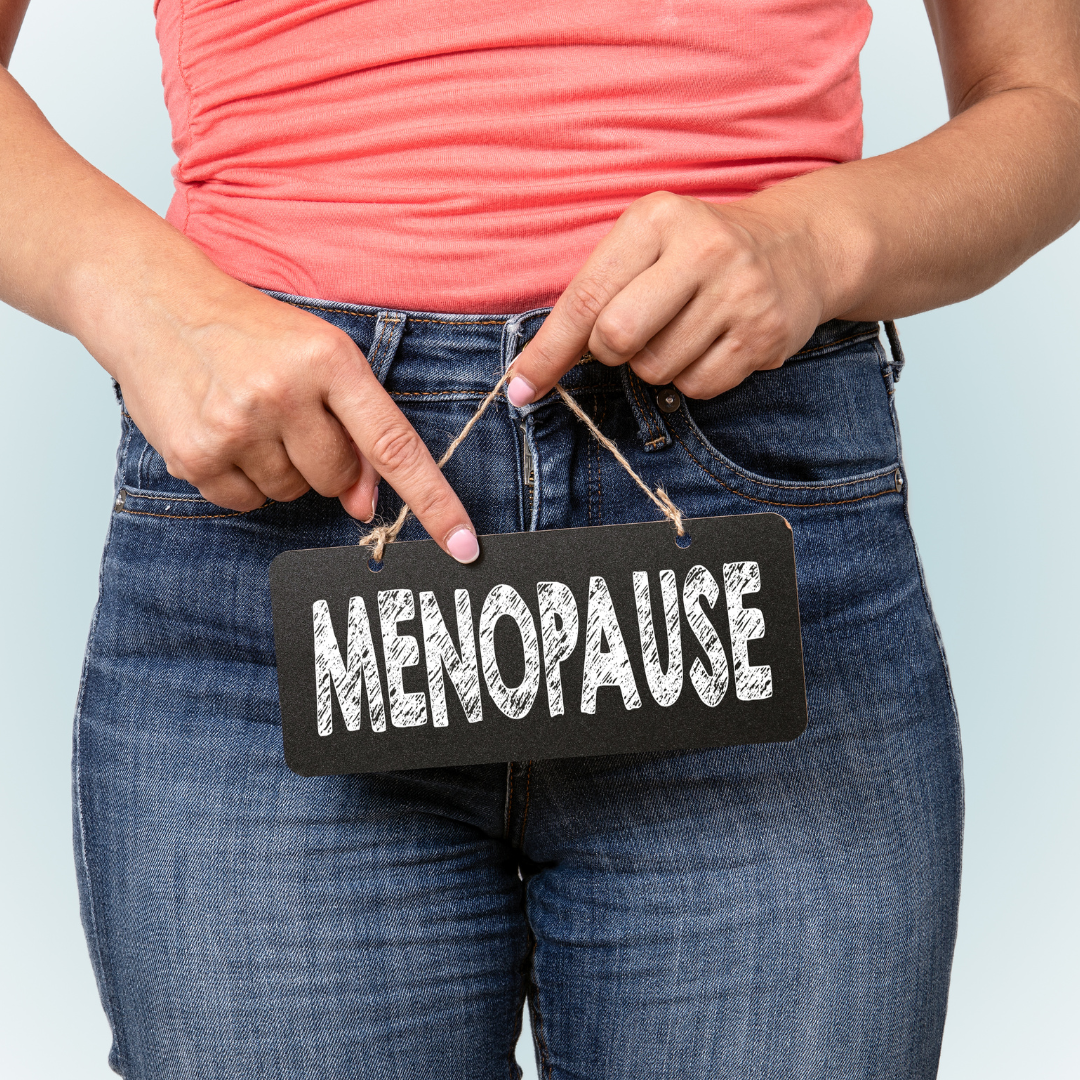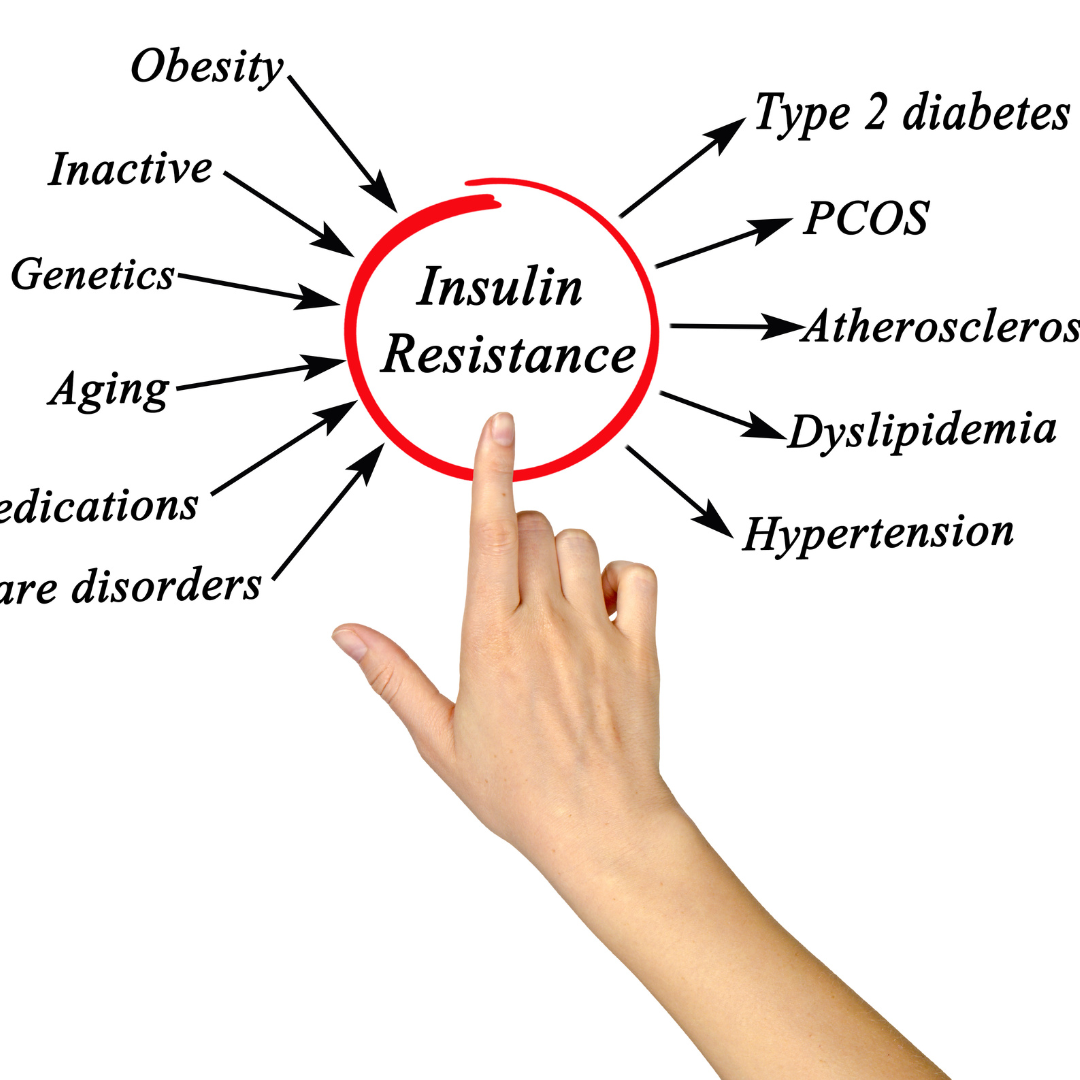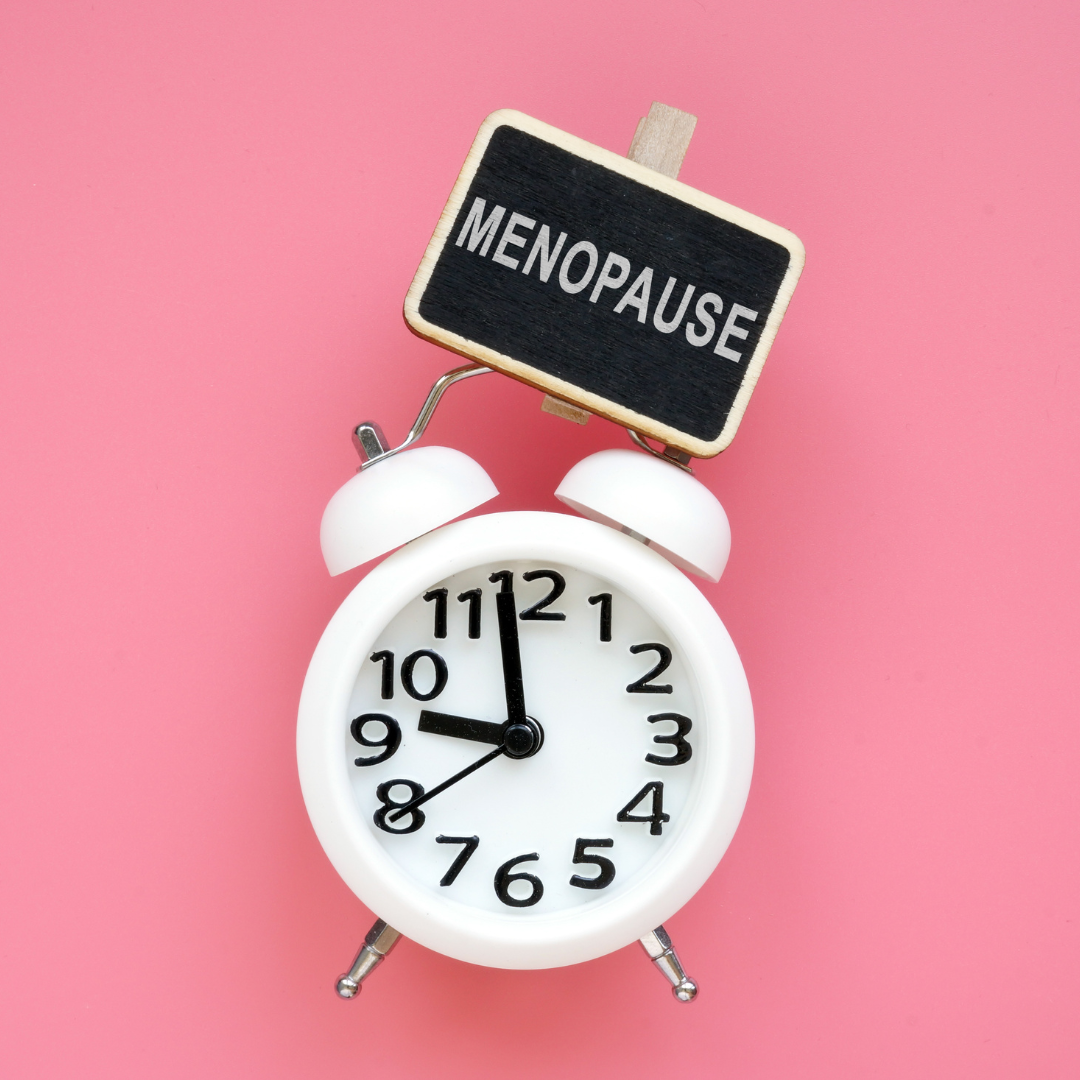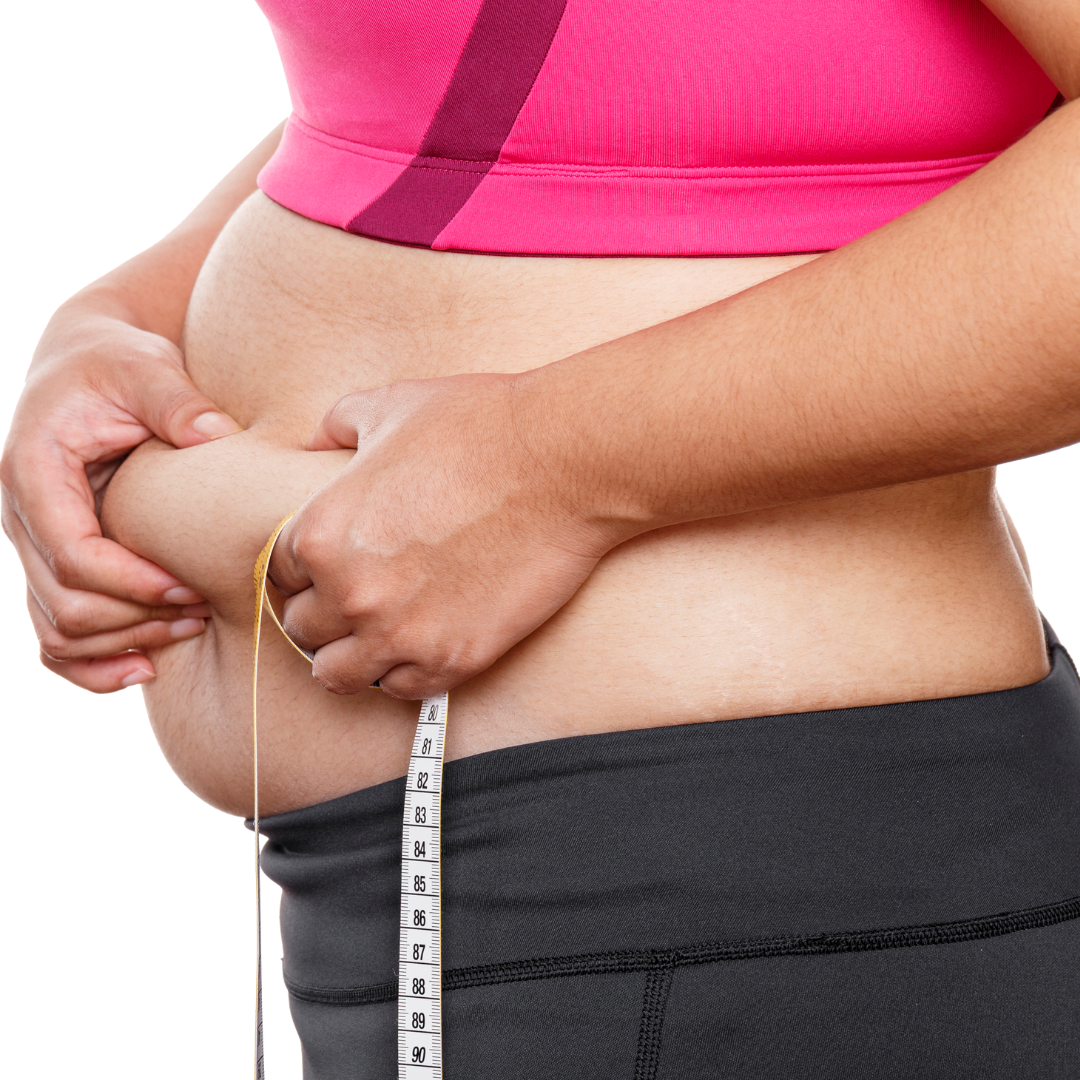Menopause Weight Gain Causes
Are you wondering what causes weight gain in menopause? Menopause weight gain causes are varied and no one teaches you what you need to know about this stage in a women's life. The bottom line is it is not your fault, and there are things you can change to mitigate the effects. Read on to discover menopause weight gain causes and what you can do to put the brakes on it.

Why do we gain weight in menopause?
Estrogen tends to cause fat to accumulate in our thighs, hips, and buttocks prior to perimenopause. A change in body shape results from the substantial rise in abdominal fat that occurs during perimenopause as a result of fluctuating estrogen levels. Many ladies discover that they transform from having a pear to an apple shape! You can lose your waistline and watch your breasts go up a few sizes as well.
Belly fat comes in two different varieties: visceral and subcutaneous.
If you pinch the extra skin around your belly, you can feel subcutaneous fat, which is surface fat.
Visceral fat is the subcutaneous fat in your abdomen that is positioned close to your internal organs. A particular kind of estrogen is produced and stored by this kind of fat.
As our ovarian estrogen levels fall, our body tries to make up for it by accumulating more fat around the waist, even though belly fat estrogen is less effective than estrogen produced by the ovaries. This type of body fat is particularly resistant to dieting and is what causes our bodies to shift shape and this is one of the biggest menopause weight gain causes.
A higher risk of major health issues like insulin resistance, metabolic syndrome, cardiovascular disease, and other conditions are associated with excess visceral fat like breast cancer, type 2 diabetes, high blood pressure, stroke and sleep apnea..
So basically our bodies think that if they store more belly fat they can make up for our declining estrogen levels. This is a survival mechanism and obviously one that we don't want to occur.
Menopause and Insulin Resistance

A hormone produced by the pancreas is insulin. In order to assist us use the glucose (sugar) from meals as fuel, the pancreas releases insulin when we eat.
Our susceptibility to insulin resistance increases when we gain belly fat during menopause. When our body doesn't react properly to the release of insulin, we say we have insulin resistance. Muscle, liver, and fat cells are less efficient at absorbing glucose from the bloodstream when they have insulin resistance. In an effort to boost absorption into the cells, the pancreas releases more insulin when blood glucose levels are greater.
It gets more difficult to lose weight and burn fat as our body's level of insulin increases.
On my diet plans, which include slow-release, high-fibre carbohydrates, your blood sugar levels stay steady.
Leptin, a hormone that fat cells use to make energy, is impacted by insulin resistance as well. The hormone leptin helps us avoid overeating by signaling to our brains when we are satisfied. It may become more difficult to lose weight when we develop insulin resistance since leptin resistance may also develop in the body. Another sign of metabolic syndrome is insulin resistance.
Menopause and Metabolic Syndrome
The combination of many health problems known as metabolic syndrome increases the chance of developing diabetes mellitus, insulin resistance, and cardiovascular disease.
For instance:
- above-optimal levels of visceral (tummy) fat increase
augmentation of harmful cholesterol
- increased fasting blood sugar
- blood pressure elevation outside of the typical range
We gain weight more readily and it is more difficult to shed weight due to the health problems connected with metabolic syndrome. After menopause, women are three times as likely than previously to suffer from metabolic syndrome.
The five indicators are:
- more body fat in the center (intraabdominal)
- high levels of triglycerides (a type of cholesterol)
- elevated amounts of insulin and glucose (insulin resistance)
- higher blood pressure
- elevated levels of fasting blood sugar
There are several natural ways to lose weight and treat metabolic syndrome and insulin resistance, both of which can have a detrimental effect on your health.

Other menopause weight gain causes
Additionally, a number of contributing variables speed up weight gain during perimenopause.
Lack of quality sleep
We don't sleep as deeply and wake up more easily due to poor sleep and reduced progesterone levels. Women who sleep for 6 to 8 hours a night are more likely to maintain their weight or lose weight than those who sleep less or more, according to studies . Because the body can't utilise its glucose as effectively for energy when there is insufficient sleep, insulin levels may rise, which can cause blood sugar levels to rise. The body then reacts by creating more insulin, which heightens desires for foods high in carbohydrates and increases hunger.
Stress;
As progesterone levels fall after menopause, our bodies become more vulnerable to stress, which raises the levels of the stress hormone cortisol in our bodies. Our appetite and desires are heightened by elevated cortisol levels, which also raise blood sugar levels.
Less physical activity and less energy due to lower estrogen levels cause many women to exercise less than they did before to perimenopause.
Loss of lean muscle mass; slowed metabolism during rest (how many calories are burned at rest). After the age of 30, according to research, we can lose up to 10% of our muscle mass every decade.
The use of more prescription drugs, particularly painkillers, sleeping aids, and antidepressants, may be a factor in perimenopausal weight increase.
Visceral fat also stores and accumulates toxins that the body is unable to eliminate, making it more difficult to get rid of them.
Why diets don't work anymore.

Given all these biochemical and metabolic body changes, it is clear why maintaining a healthy weight throughout the perimenopausal transition presents a significant problem.
Dieting (calorie restriction and inadequate nutrient intake) increases our body's stress by decreasing the vital nutrients that our body requires to function properly causing blood sugar swings that result in cravings and weight gain decreasing our energy and our metabolic rate is slowed
Although it's harder to lose weight now, dieting, fasting between meals, cutting off carbohydrates, or using smoothies or cleanses will make you gain weight rather than lose it. Yes, you might temporarily lose some weight, but you'll rapidly gain it back plus some.
When we diet, we run the risk of not getting enough of the vital nutrients that our bodies and hormones require to feel good and perform properly. We can then experience harsher hormonal symptoms and put on extra weight. Not only is a nutritious diet crucial for weight loss during menopause, but it also helps our hormonal issues.
Menopause weight gain also makes us feel bad about ourselves when we are already under enormous stress!

Gaining weight makes it more difficult to cope with the stress of our other menopause symptoms. Our self-esteem and quality of life can suffer when we're not satisfied with the way we look.
It has been demonstrated that low self-esteem has detrimental long-term repercussions on mental health. According to studies, menopausal weight gain is frequently accompanied by a rise in social anxiety, which results in loneliness, social retreat, and feelings of isolation.
In comparison to women who maintain their weight during menopause, studies reveal that women with menopause weight increase feel less beautiful after just one year of weight gain.
Understanding menopause weight gain causes can help you to be more proactive and therefore more positive about this stage in life.










